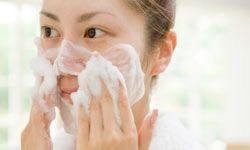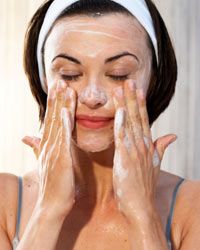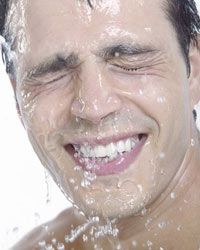When it comes to facial cleansers, there are as many to choose from as there are faces to be cleaned -- creams, lotions, pads, soap bars, gels, scrubs and self-foaming cleansers all fill the shelves. Clearly, there's no "one size fits all" product.
So what's all the fuss? You might be familiar with the phrase "Put your best face forward." In this situation, you can take it literally. The face takes quite a molecular beating each day. Some women cover it with makeup, and men hack away at it with razorblades. Our faces brave the elements, from wind and cold to heat and rain, and we touch them with our oily or ketchup-tainted hands throughout the day.
Advertisement
Facial cleansers can help with all of these facial dangers, primarily by clearing away the dirt, grime and dead cells, thus facilitating the production and easy travels of new skin cells. If you choose the right facial cleanser (or combination of cleansers), your face will regain a more youthful and healthy appearance. But how do you choose? Let's find out.



